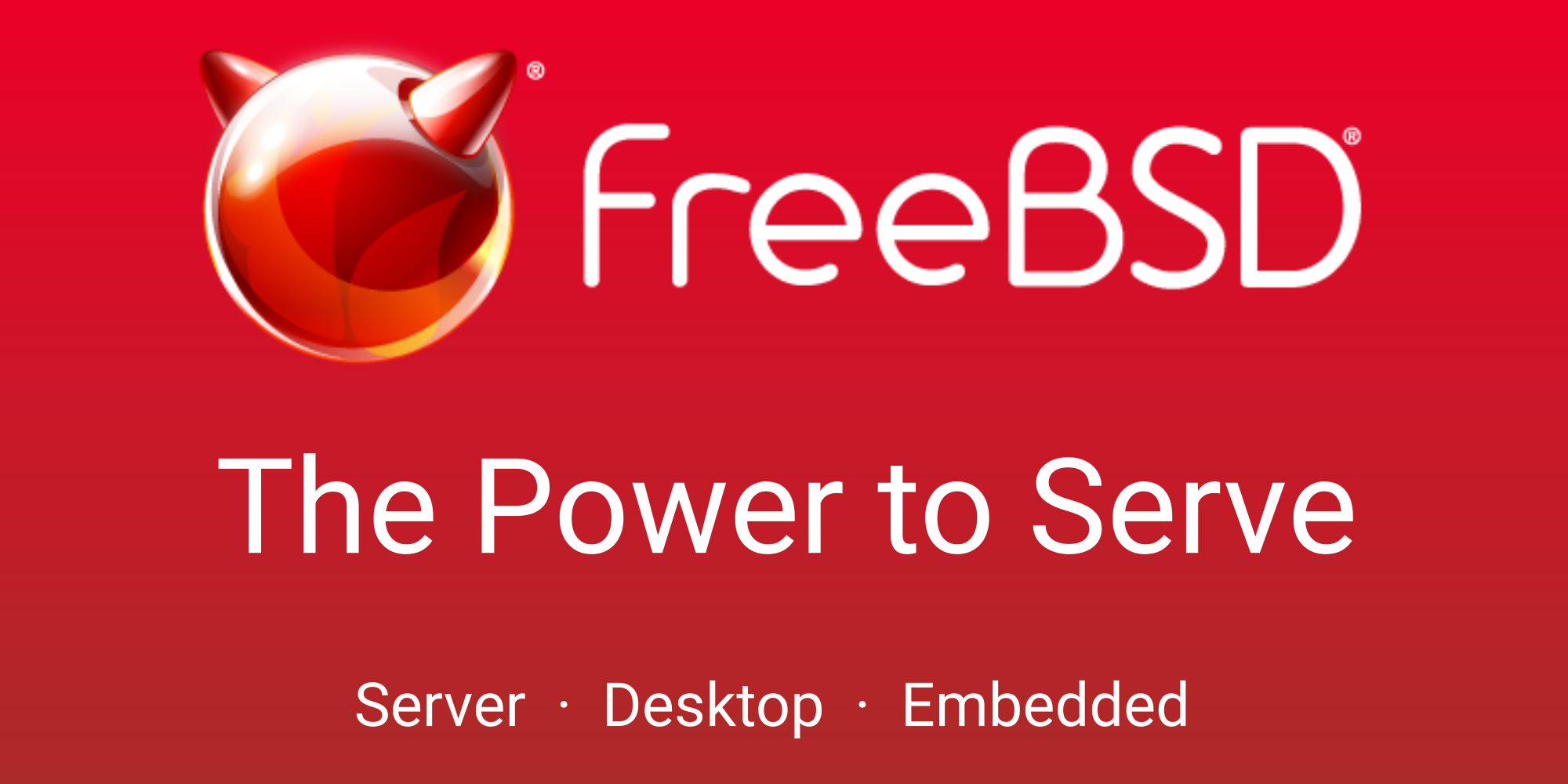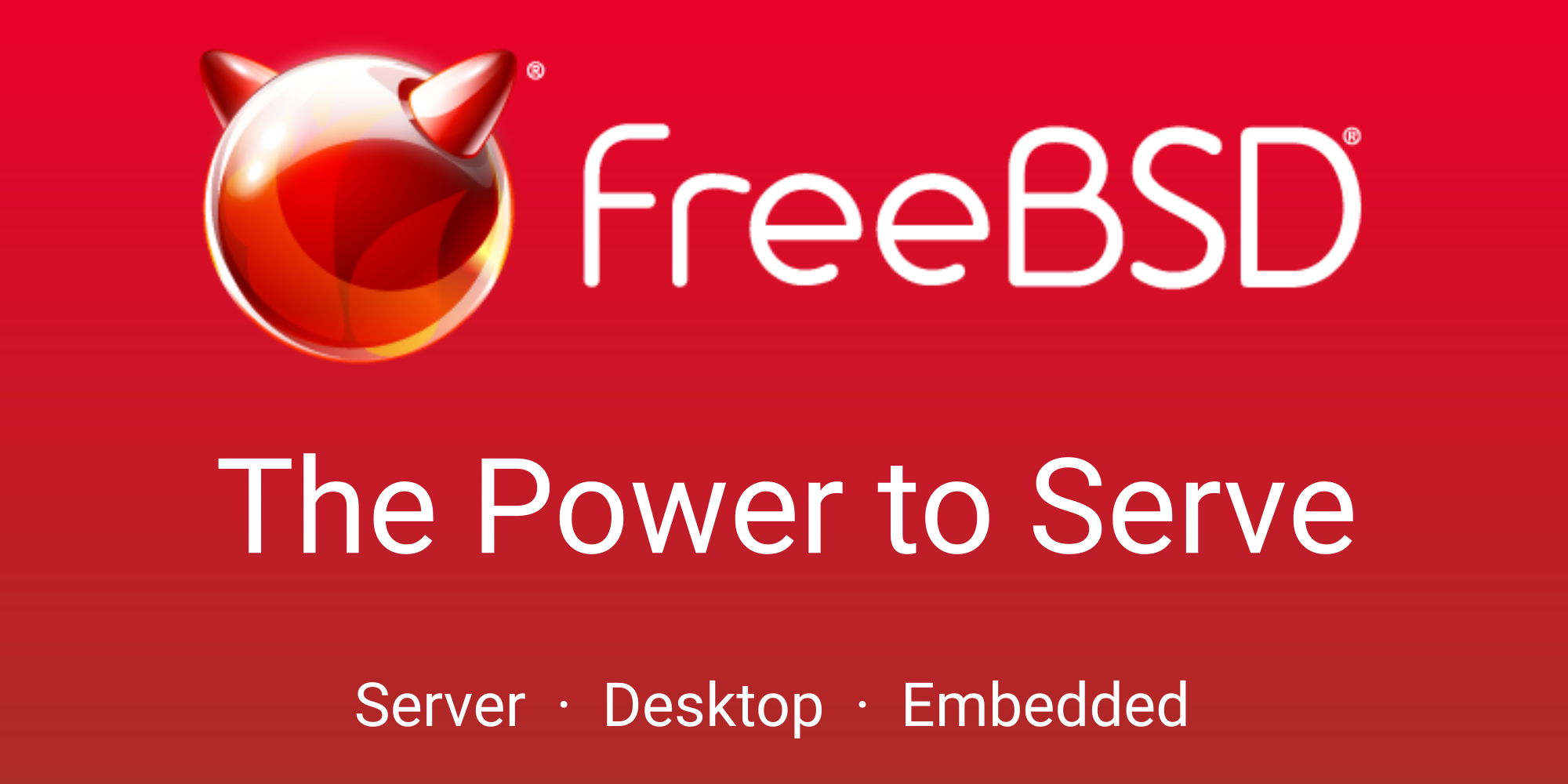FreeBSD is an operating system used to power modern servers, desktops, and embedded platforms.

The FreeBSD foundation has made significant progress in contacting commercial FBSD users. They also wish for FreeBSD to have better tier 1 cloud support, and better documentation on Azure (the latter sponsored by Microsoft, may be good or bad).
Netflix (out of all companies) sponsors FreeBSD support of LinuxBoot, which is a boot firmware, that in fact, boots Linux (in case you didn't know). The FBSD developers currently need help with the following things (taken directly from site):
- loader.kboot(8) needs to be written. It should document how to use loader.kboot, how to create images, and the use cases that work today.
- Finish amd64 support.
- The current elf arch-specific metadata code is copied from efi. Unifying the kboot and efi copies is needed. While they are mostly the same, sharing is complicated by remaining compile-time differences. In addition, the build infrastructure makes sharing awkward.
- It would be nice to add riscv64 support.
- PowerPC testing (it has been untested since the refactoring started).
- Creating a script to repackage EDK-II image (say, from QEMU) as a linux-boot image with a Linux kernel built on FreeBSD for CI testing.
- Testing it from the coreboot LinuxBoot.
The Custer Administration Team has seemingly been successfull at finding mirrors (companies have provided hardware, however it has not been specified whether they are mirrors on the site), however, they still require a full mirror site with 5 servers within Europe specifically.
With the Honeyguide Group sponsoring, the FBSD team plans to make jails more akin to Docker images. Pot will be the FBSD equivalent of Dockerhub. This will be great for the development of FBSD, since Docker is a must-have feature for many developers.
Wazuh is an open source platform, which is used for threat prevention, detection, and response. The main goal is to make FreeBSD more visible as a cybersecurity platform. You can contribute if you wish.
All in all, many developments are being made in FBSD, and I think it may interest you to take a look.
The BSDs have made quite a few innovations over the years. Many of them have not only made it to Linux, they have made it to Windows and MacOS as well. You might find this page on OpenBSD's website quite interesting! :)
Synopsis
Do you think BSD, or Linux is better? Which of the BSDs do you think are the best?
Let's start a war!
FreeBSD is an operating system used to power modern servers, desktops, and embedded platforms.

This is the FreeBSD status report for the first quarter. It describes many operating system improvements, along with efforts on promoting FBSD. The FreeBSD foundation sponsors many events, which include tech conventions. Currently, the cluster administration team are looking for new mirror sites; If you know anyone, or are someone, who could host such sites, within certain countries, they wish to get in touch. The teams at FreeBSD also need help with various other things, such as translation, Freshports, and general feedback/patches.
I want to see your thoughts below. I think the discussion will be quite interesting! :)
Salutations, and welcome to the BSD community of programming.dev!
The BSDs are a family of operating systems that derive from the original Berkeley Software Distribution. They are UNIX like, therefore much of the same software that is on Linux, can be found on the BSDs (including the shell).
The three main BSDs that are currently being maintained are FreeBSD, NetBSD, and OpenBSD.
FreeBSD: > https://www.freebsd.org/
FreeBSD is what I think is the general-purpose BSD. FreeBSD comes with many useful tools out of the box (particularly for SysAdmins), along with a very handy dandy manual (handbook). The handbook details the install process, along with many tools that come out of the box. The tools include: Clang (C++ compiler), Bhyve (hypervisor), Jails (docker alternative), networking tools, ETC. A more comprehensive list can be found here: https://www.freebsd.org/applications/.
OpenBSD: > https://www.openbsd.org/
The same team that curated OpenSSH, presents OpenBSD. The folks behind OpenBSD are far more security-minded. Their methods of security are described here: https://www.openbsd.org/security.html. Due to increased security, users may notice a drop in performance compared with Linux, or the other BSDs. However, it may be worth the benefit within more secure environments. OpenBSD also puts a focus on cryptography, along with portability, correctness, and standardization.
NetBSD: > https://www.netbsd.org/
I consider NetBSD to be the hobbyist BSD. You can run this thing on anything from a yellowed-out Dreamcast from a century ago, to your ordinary x86_64 supercomputer. It is also fast. Therefore, your average home toaster has a chance at browsing the internet in the modern day. Just make sure to bring a fire extinguisher, before you enable JavaScript ;). Besides being a toaster's lord and savior, it is also easy to modify NetBSD's source code (You can also do it with the other three). NetBSD has been used as a teaching source for operating system development. It may be a smaller project than the other two, but I believe it is worth having a look at.
All three of these BSDs have their own personality, and I believe getting to know them better will make you a better programmer. They have a lot to offer on the table, and I hope all of you who stumble upon this page will give them a fighting chance! :)
Who doesn't like compounding two words with different meaning by definition, but for some inexpiable reason have the same meaning in the programming world, by shortening them?
Now the poor, average programmer has to deal with strange words. One such example is "permission," which is normally used within a casual context, rather then within a more serious context, like a program handling secure data. The poor programmer can now no longer take his job seriously, and is now forever in an existential crisis, due to the lack of formality. ;)